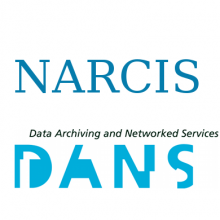Resource information
Pressures on the natural resources, especially land and water, continue to increase as a result of an ever-increasing world population and continuing economic growth. These pressures originate from the many claims of stakeholders at different scales on the limited resources, and are aggravated by their different and often conflicting goals. Discussions on alternative resource uses, prioritizing different goals, and formulation and implementation of land use policies would greatly benefit from a quantitative assessment of the economic, social and environmental benefits and costs associated with the alternatives. In this study, a multi-scale and model-based approach was developed and applied in support of joint-learning, policy discussions and decision-making with respect to agricultural land use. The methodology was operationalized, in consultation with stakeholders, for the province of Ilocos Norte in the northwest of the Philippines, and its most populous municipality, Batac. Six optimization models with different specifications were developed for different spatial scales: one for the farm, four for the municipal and one for the provincial scale. Results of the farm household analysis show the comparative attractiveness of alternative agricultural technologies, although adoption behaviour with respect to these technologies is different for poor, average and better-off households. The provincial analysis provides a quantitative assessment of the trade-off involved in prioritizing economic goals over social goals of food self-sufficiency and increased employment in agriculture. Results of the municipal analysis show that limited markets, inadequate infrastructure and resource endowments of farm households strongly affect resource use and goal achievement in Batac. As the effects of these factors in the model are significant, ignoring them may result in misleading simulation results and, hence, policy conclusions. The multi-scale approach was used to quantify the effects of agricultural policies pertaining to attainment of food self-sufficiency goals, liberalization of rice prices, infrastructure improvements and volumetric water pricing on income, food production, resource use, and environmental indicators at the farm, municipal and provincial scales. Food self-sufficiency goals can be achieved but conflict with economic objectives. Liberalization of rice prices results in lower income for farmers but benefits rice consumers as a result of lower rice prices. Irrigation improvements can contribute to increased rice production, however, at the expense of income. Similarly, volumetric water pricing can result in more efficient water use at the farm and municipal scale, but at the expense of income in the short-run. Many of these results seem trivial, but the model-based analyses result in quantitative estimates for the effects on the economic, agricultural and environmental dimensions of the problem. It is anticipated that model-based analyses has a potential to play a key role in participatory land use policy formulation. Results from the multi-scale approach presented in this thesis can provide valuable information for policy development and assessment. This may enhance transparent discussions among stakeholders on the implications of various objectives and priorities at different scales for resource use. This also allows ex-ante analysis of agricultural and natural resource use policies, including assessment of the potentials of new agro-technologies. Keywords: Linear programming; Natural resource use; Policy analysis; Farm household modelling; Regional modelling; Philippines


